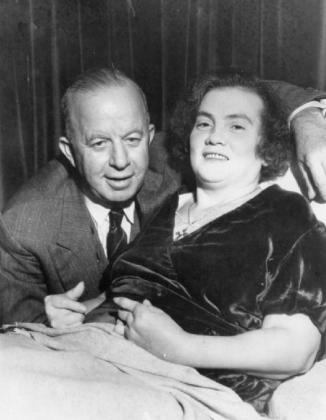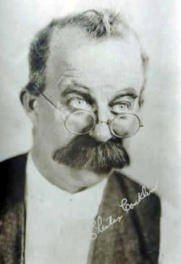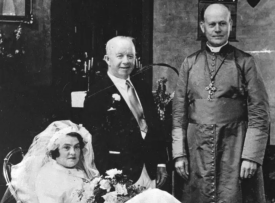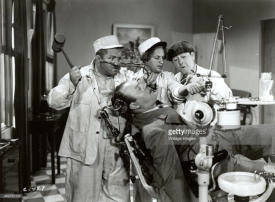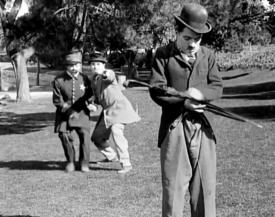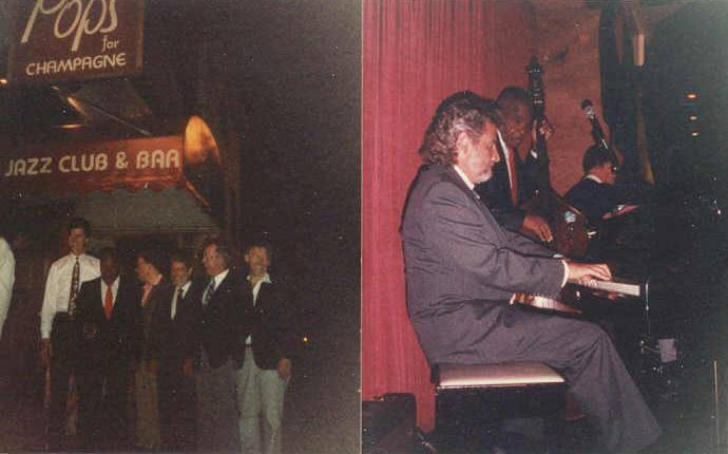
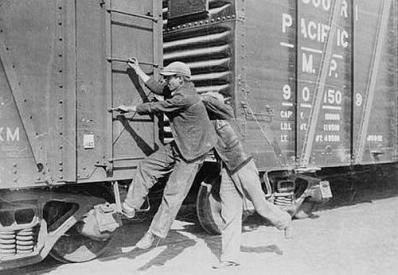
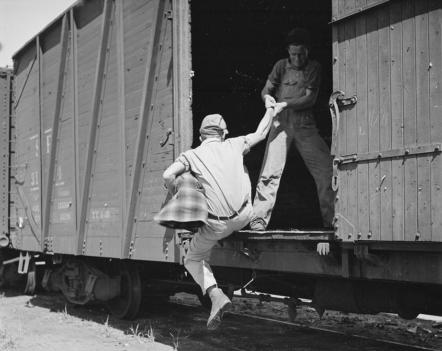
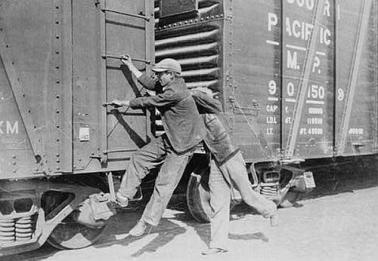

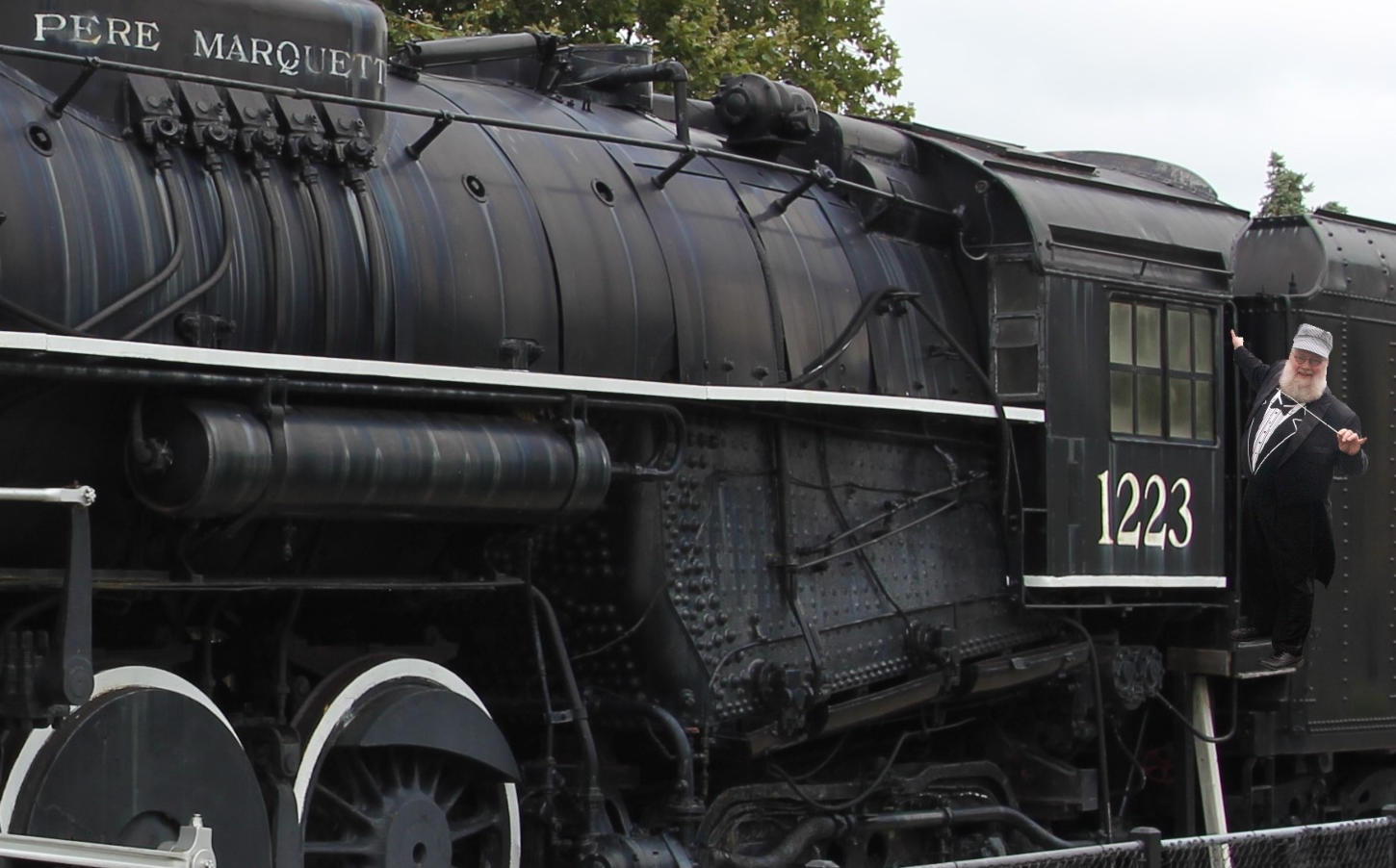
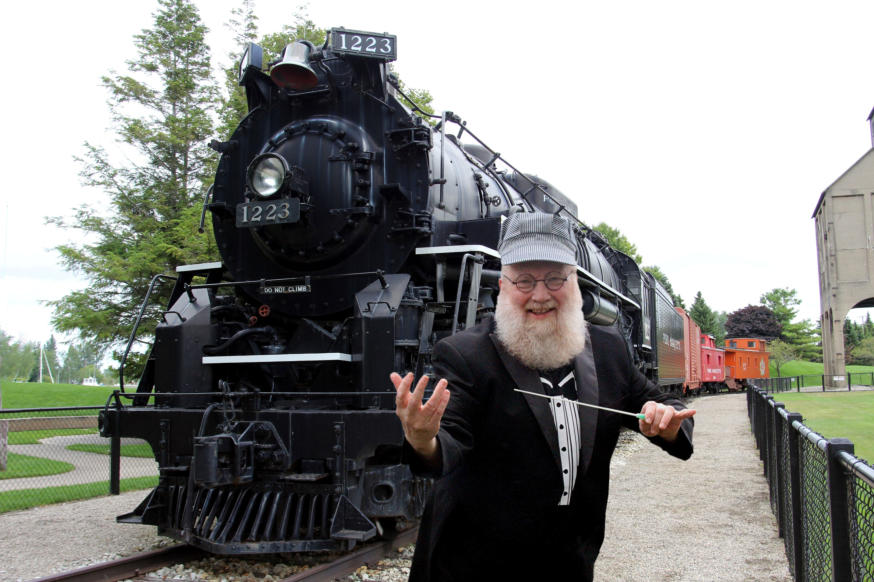
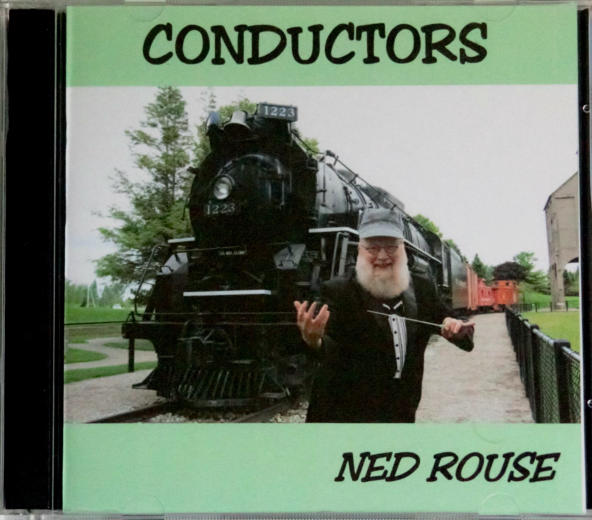
My Great Grandfather, Clarence A. Rouse, (photo above, on the right, in the middle) was an employee
of the Pere Marquette railroad for more than 30 years. He was a conductor on the Baldwin-Grand Rapids-
Chicago run for the last 18 years of his life, and had lived in both Grand Rapids and Chicago. Whenever
his train passed through Grand Rapids, Clarence would have the family groceries and supplies he’d picked
up in Chicago, hung on the mail bag hook for his family, as the train pulled through the station. He was a
very stern and practical family man. He was a tough no nonsense father. One of his sons, Byron, recalled
he and his brothers being surprised when Clarence cried at the funeral of his first born son. They didn’t
think he had it in him. Clifford, who was a Pere Marquette railroad brakeman on his father’s train, died in a
terrible and freak accident at the young age of 24. There is more about Clifford and the accident much
further down this page.
------------------------------------------------
Clarence’s son, my Grand-Uncle, Charles “Rousseau” Rouse (photo above)
Charles Rousseau once danced for the crowned heads of Europe, and it was featured in Life magazine.
He was known for his eccentric nature in several memories recalled by my Uncle Rich, and my Mother,
Beverly Rouse. He would show up in a beret, his wild silk robe and pajamas to conduct the orchestra, or
attend musical events. He was married to his Swedish wife, Gerda, whom he’d met while performing in
Europe, and later settled down with, right next door to my Grandpa Hank’s home in Baldwin, Michigan.
When he was buried at the Pleasant Plains Cemetery in Baldwin, he had their gravestone reversed to face
the east to reflect his love of the orient. Every other gravestone there, faces the west.
Charles Rousseau’s Education: Trained for a career in Opera, but he had several music related
occupations.
Occupation: Piano Teacher
Occupation 1: Bet. April 15 - 16, 1910, Listed as a Clerk in a Music Store
Occupation 2: Singer/Dancer/Conductor.
Occupation 3: April 16, 1930, Music Teacher
Clarence’s son, my Grand-Uncle, Clifford Pascal Rouse, (photo above, center) was a brakeman on the
Pere Marquette Railroad.
CLIFFORD PASCAL ROUSE:
During his 3 years in the United States Army, Clifford had spent a year and a half at Alcatraz Island,
California, where his regiment had charge of the government prison. He disliked serving at Alcatraz, and
once out of the service, went to work on the railroad with his father.
Below Are Grand Rapids Press Articles From 1905 Describing his Tragic Train Related Accident And
Death:
Clifford P. Rouse accident in the Grand Rapids Evening Post
April 10, 1905.
HE FELL FROM A FREIGHT TRAIN
---------------------------
Clifford Rouse, Pere Marquette Brakeman, Horribly Hurt.
---------------------------
BOTH LEGS CUT OFF
---------------------------
Hands Both Mangled So That Amputation Was Necessary---Recovery Is Doubtful.
---------------------------
Clifford P. Rouse, a Pere Marquette brakeman, 24 years old, and residing at 25 Rural street, was taken
from the Union Depot by the police ambulance to Butterworth hospital at 4:30 that morning. He was
attended by Dr. R H. Spencer. Rouse suffered terrible injuries to both feet and hands, which were badly
mangled in a peculiar way. Rouse was on an incoming freight train, and when near Baldwin met with the
accident, he was on top of a car walking toward the rear of the train, when a gust of wind blew his overcoat
around his lantern, and in the darkness he fell off the car. At the hospital one leg was amputated above the
knee and on the other just above the ankle. His hands were also horribly mangled, it being necessary to
amputate nearly all of the left and a part of the right. He came off the operating table in good shape but at
11 o'clock he began to sink and died at 1:15 this afternoon.
Notes on this Newspaper article: The address in this clipping is incorrect, the actual street address is 22
Rural Road, which over the years has become 449 Glenwood. I retyped the clipping so it could be read, the
microfilm was in pretty bad shape and had lines through it.
Clifford Pascal Rouse accident in the Grand Rapids Evening Press
Grand Rapids, Michigan, Monday, April 10, 1905. 5,O'Clock.
DIED OF INJURIES
-----------------------
Clifford P. Rouse Lost Both His Legs.
-----------------------
HANDS WERE MASHED
-----------------------
Hurried to This City and Four Injured Members Amputated.
-----------------------
Unfortunate Was Blinded by Storm and Stepped Off Rear End of the Backing Car.
-----------------------
Clifford P. Rouse, a brakeman on the Pere Marquette, was the victim of a terrible accident at Baldwin
early this morning. At 1 o'clock his train was backing out of a siding and he was on the last car. There was
a storm raging and the wind blew his coat so as to obscure his lantern and he walked off the rear of the car
and was crushed by the wheels. When picked up he was found to be terribly mangled and was rushed by
special to this city, in order to secure proper surgical attention. He arrived here at 4:45 and was taken to
Butterworth hospital, where Dr. R. H. Spencer attended him and operated at once.
It was found necessary to amputate both legs, the right just below the knee and the left just above the
ankle. His hands were also badly crushed and amputation removed all but the thumb and index finger of
his left hand and the first two fingers of the right hand. In addition Rouse had sustained a bad contused
wound on the forehead.
Rouse was 22 years of age and a son of Conductor Rouse. He resided at 22 Rural street and was
unmarried. There was little hope held out that he could survive his fearful injuries and he died at 1:15 this
afternoon.
Notes on this Newspaper article: The street address is 22 Rural Road, which over the years has become
449 Glenwood. His age in this article is incorrect, he was actually 24 years old.
Clifford P. Rouse accident in The Grand Rapids Herald, dated April 11, 1905.
AWFUL INJURIES RESULT IN DEATH
------------------------
Brakeman Clifford Rouse Sustains Loss of Both Legs and Both Hands Under Wheels.
------------------------
Special of The Grand Rapids Herald.
BALDWIN, Mich. April 10 - Clifford Rouse of Grand Rapids, brakeman on freight No. 50, met with a
terrible accident at 1 o'clock this morning. While walking on the cars his rain coat was blown by the wind
about his lantern and in the darkness he stepped between instead of across two cars falling on the track.
The train passed over him severing both feet and crushing his hands. One eye coming in contact with a
bolt, was also pushed partly out of the socket. Young Rouse is a son of Conductor Rouse running on a
Pere Marquette passenger train between Grand Rapids and Petoskey. The unfortunate young man was
sent home today in a conscious condition realizing his terrible misfortune.
Died Yesterday Afternoon.
Clifford P. Rouse died about 1 o'clock yesterday afternoon at Butterworth hospital, to which he was taken
upon the arrival of the train in this city at 4:45 a.m. He was operated upon by Dr. R. H. Spencer, who found
it necessary to amputate both legs, the right just below the knee and the left just above the ankle. Three
fingers were amputated from his left hand and the first two fingers were removed from his right. Rouse was
unmarried. He was a son of Conductor Rouse and resided at No. 22 Rural street. The funeral will be held
from O'Brien's undertaking parlors Wednesday afternoon.
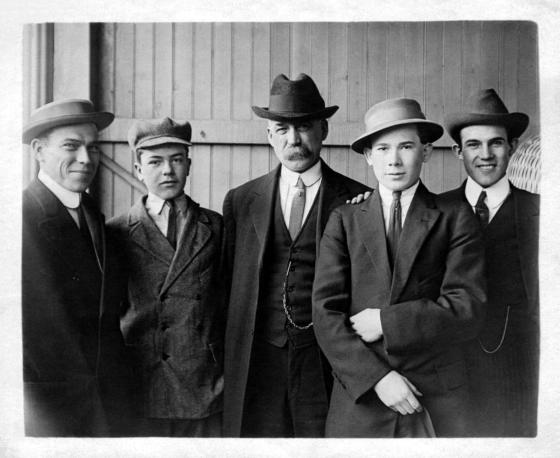
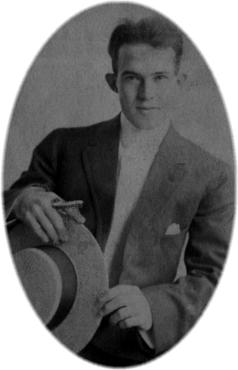
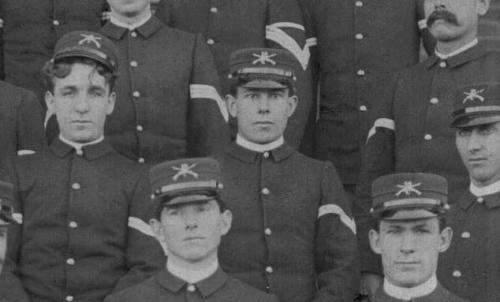

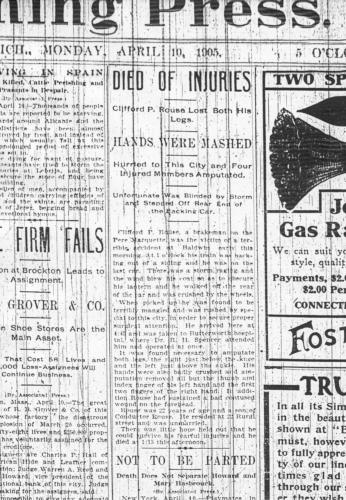
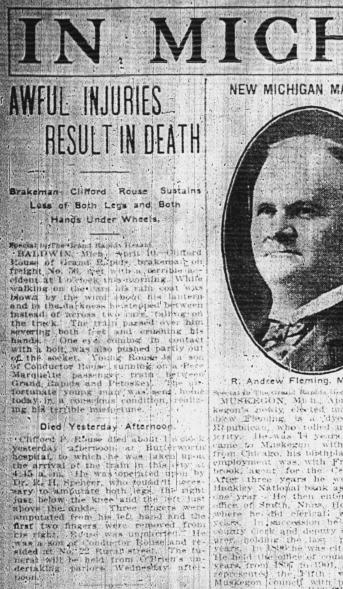
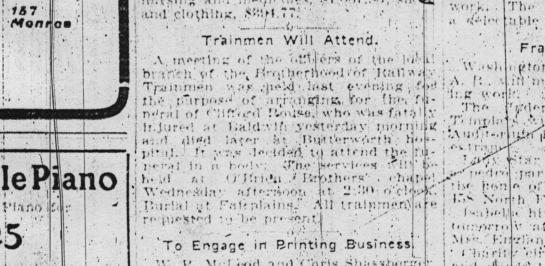
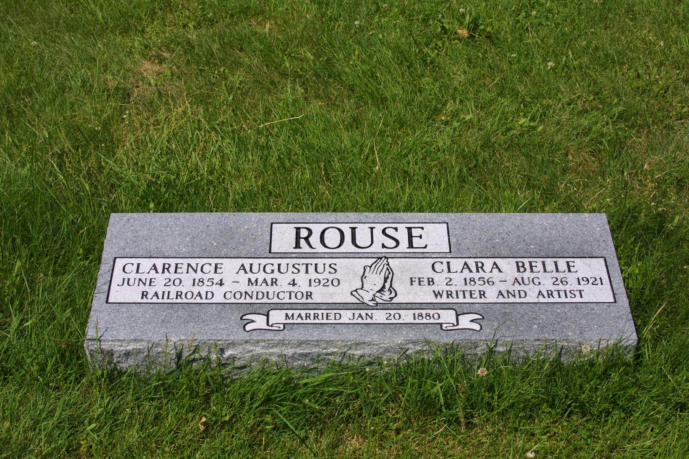
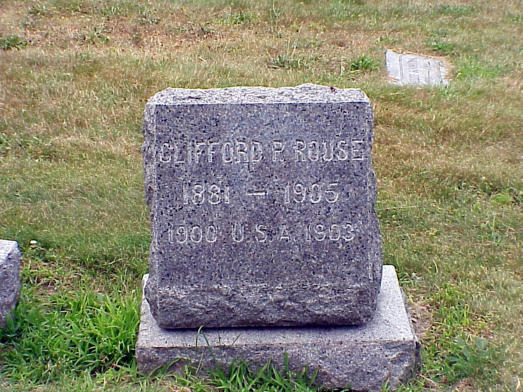
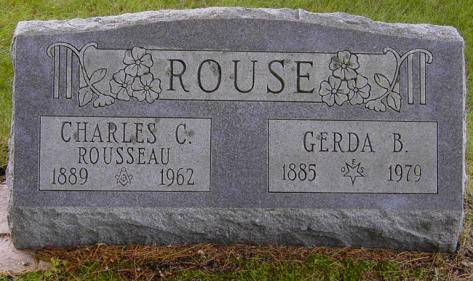

IMPRESSIONS
Words & Music Copytight 2019 by NED ALLEN ROUSE
Noticing the impressions, they left behind
The marks on the pathway, the place in my mind
So many images, so many things
Placed in my world, and in my dreams
The impressions they made, were faint, or were sharp
So much room was made, infinite space in my heart
All are in there, my family, and friends
Whenever I close my eyes, I have them again
My impressions of life, are transparent like ice
Thawed in a moment, and brimming with life
Held in a memory, brought back for a few
Impressions are what have me, remembering you
You!
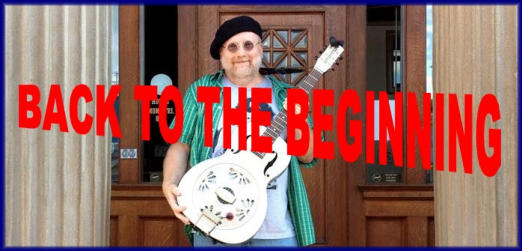

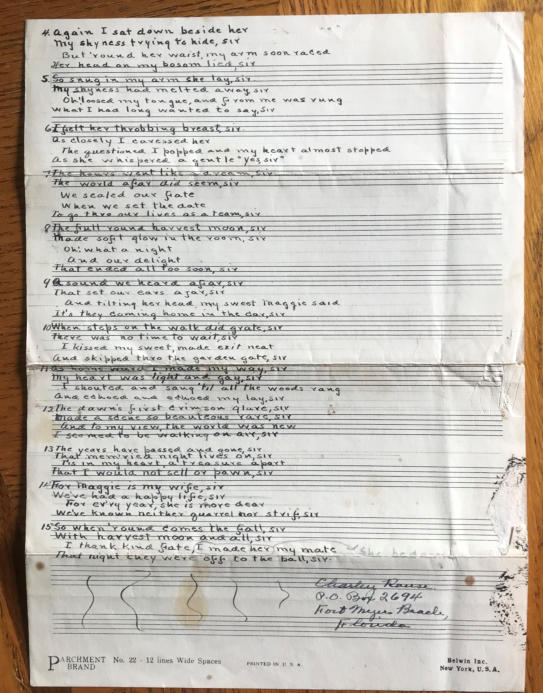
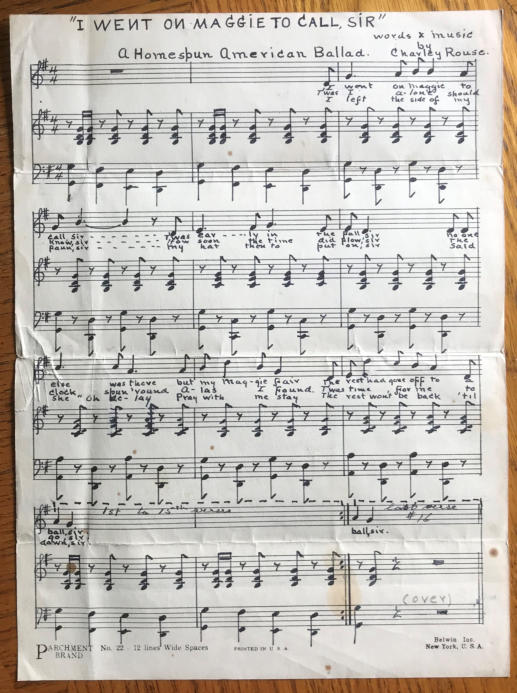
TRACKS
Words & Music Copyright 2019 by NED ALLEN ROUSE
I followed their tracks to see where they came from
I followed their tracks to see where they went
I made my own tracks as a part of my journey
And found other tracks that others had left
I heard the train’s lonely call from the distance
Warning me to stay on my track
To go anywhere with gratitude
I would also need to look back
I was gathering steam for my future
I was learning things I would need
So I would reach my destinations
Where all my tracks need to lead
I followed their tracks to see where they came from
I followed their tracks to see where they went
I made my own tracks as a part of my journey
And found tracks that others had left
And found other tracks that others had left
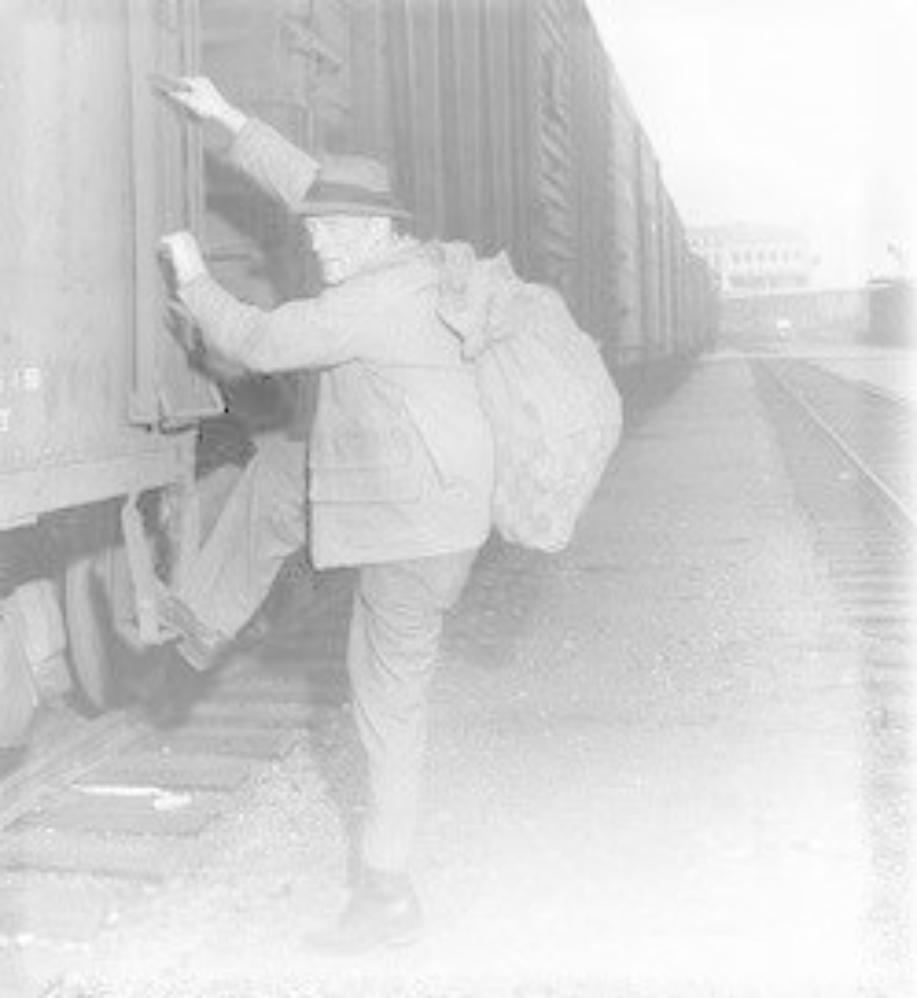
HOBOS
Words & Music Copyright 2019 by NED ALLEN ROUSE
Mother used to tell me
bout' the hobos coming around
during the great depression
when the train came through Baldwin
Came through Baldwin
They'd do odd jobs for handouts
Winding up here or there
Camping by the depot
Then riding the rails
Riding the rails
A life of wandering, no roots put down
moving free, from town to town
Hopping trains, as the Brakeman pulls
Staying clear of the Railroad Bulls
The Railroad Bulls
Hobos Hobos, Hobos, Hobos
One was such a gentleman
They looked forward to when he came
Grandmother would fix him dinner
Ben was his name
Ben was his name
One season he stopped coming
and Ben never did come back
As did many other hobos
who've faded from the tracks
Faded from the tracks
Where are all the hobos, in the times that were so dire
They were washing in the streams, and warming by the fire
While waiting for some work, something to be earned
They went away so long ago, never to return
Never to return
Hobos Hobos, Hobos, Hobos
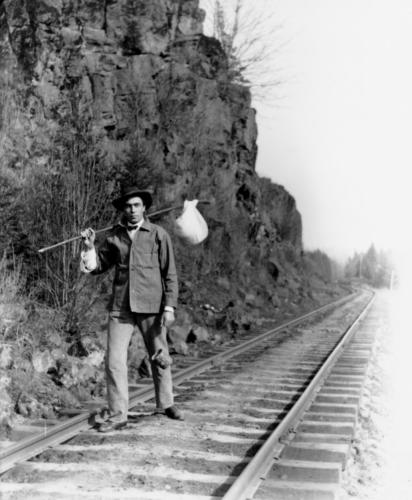
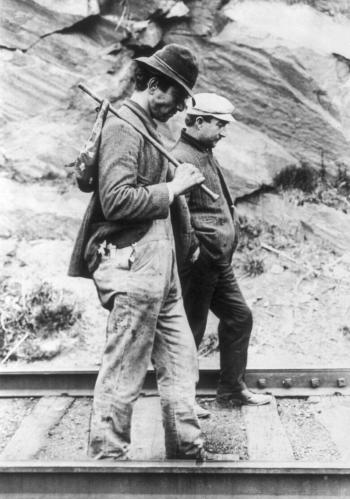
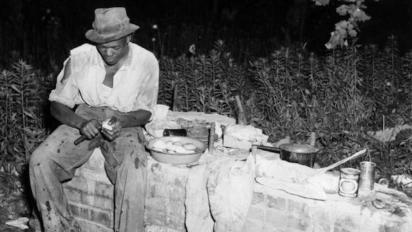
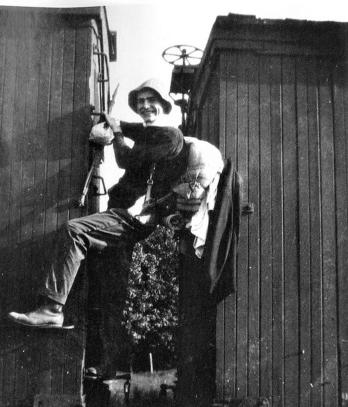
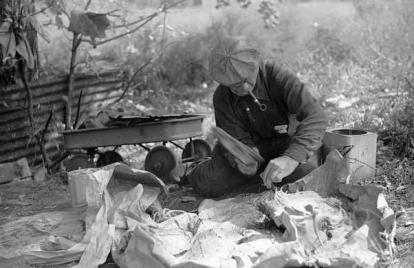
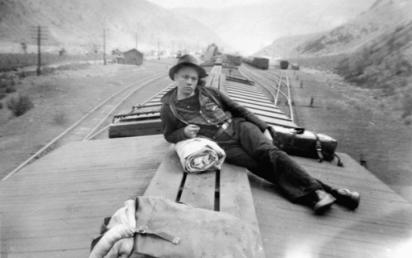
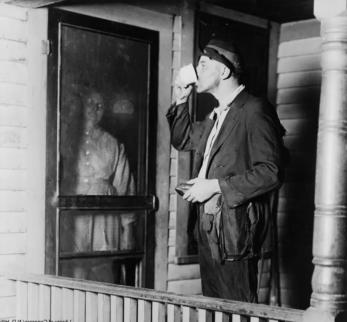


My Great-Grandmother, Clara Rouse was an author and an artist. She wrote the book, Iowa Leaves, and also
wrote for The Washington Post. Her father was Col. Robert Robinson, who helped found the state of Iowa with
the man who was to become the first Governor.
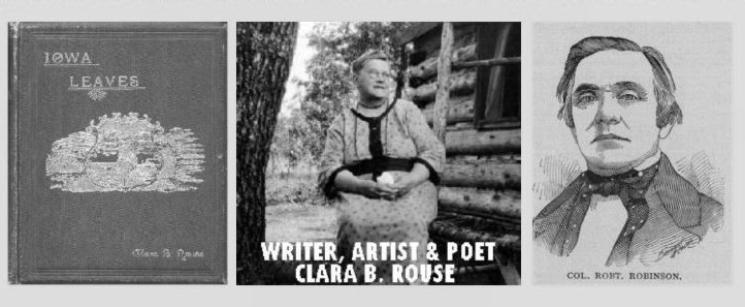
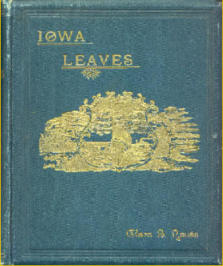
Clifford P. Rouse funeral notice to the Brotherhood of Railway Trainmen In The Grand Rapids Herald. Dated April 11, 1905.
Trainmen Will Attend.
A meeting of the officers of the local branch of the Brotherhood of Railway Trainmen was held last evening for the purpose of arranging for the funeral
of Clifford Rouse, who was fatally injured at Baldwin yesterday morning and died later at Butterworth hospital. It was decided to attend the funeral in
a body. The services will be held at O'Brien Brothers' Chapel Wednesday afternoon at 2:30 o'clock. Burial at Fairplains. All trainmen are requested to
be present.
CLIFFORD PASCAL ROUSE: Burial: April 12, 1905, Fair Plains Cemetery, Grand Rapids, Kent County, Michigan. Cause of Death: Killed while in the
discharge of his duties on the Pere Marquette Railroad.
On the left, is my Grand Uncle, Robert Rouse, who was a well known artist and political cartoonist for the Press. He was discovered by
Dutch artist Mathias Alten, a well known German- American impressionist painter. He met young Robert studying and sketching people
at the Train Depot in downtown Grand Rapids. Robert soon became his understudy. They were both active in Grand Rapids, Michigan.
At the left, and below, are three Alten paintings of Robert. He was captured a bit younger as the Paint Mixer, and the Fish Scaler.
Further below them are just a few of Robert’s political cartoons of the ealy 1900’s.
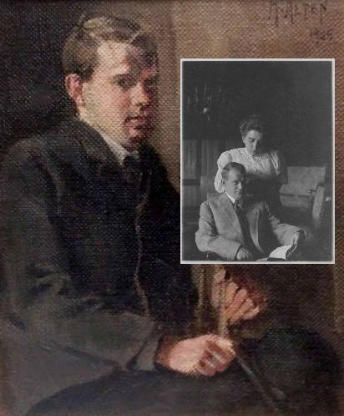
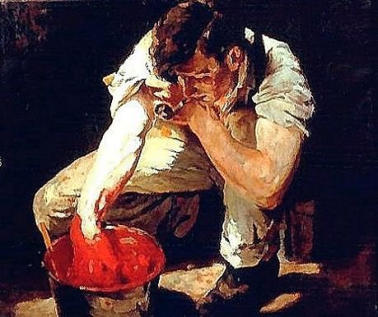
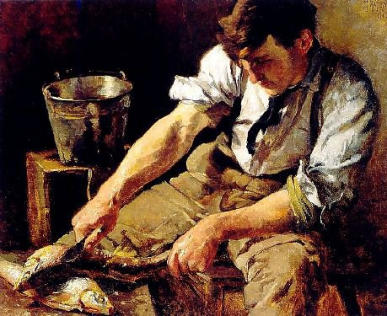
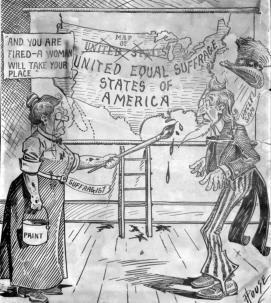
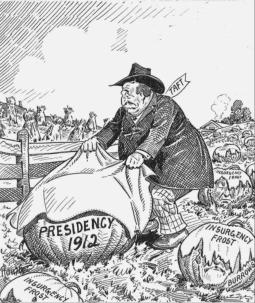
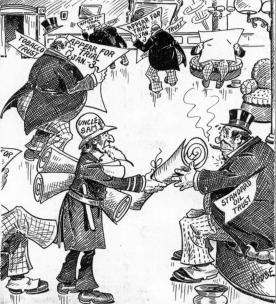
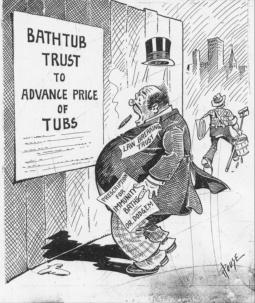
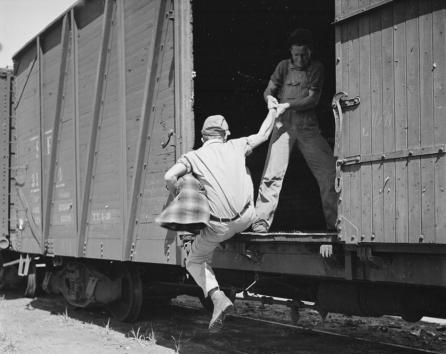
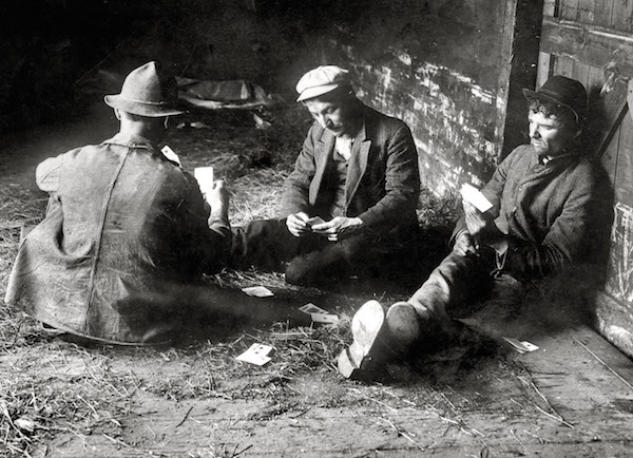
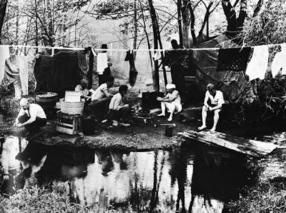
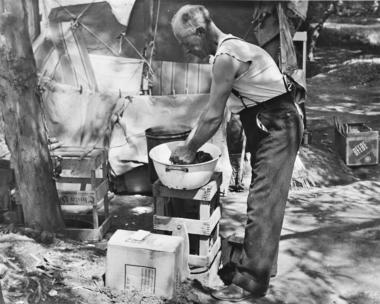
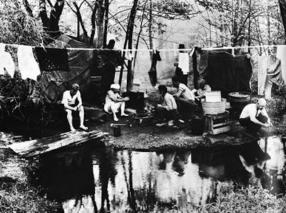
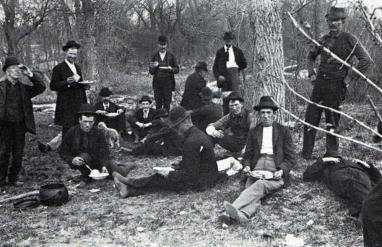
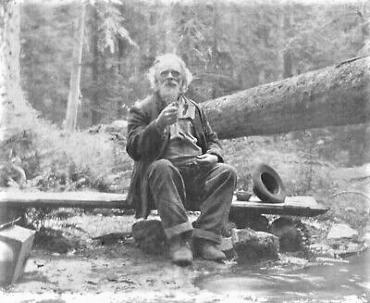
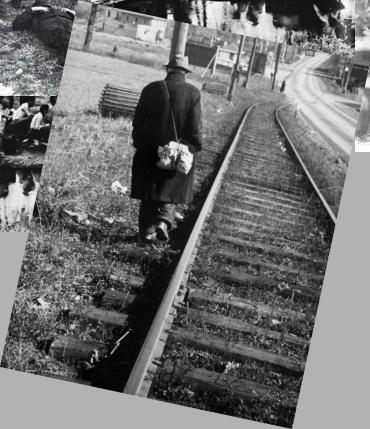
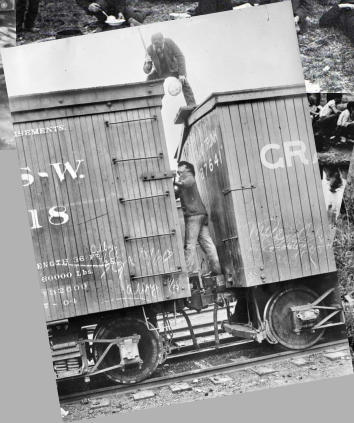
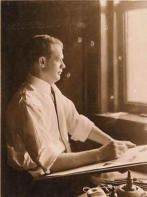
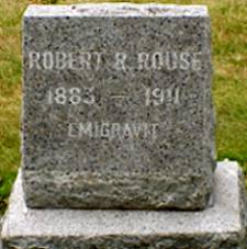
Robert Rouse. 1883-1911 EMIGRAVIT
Emigravit is the inscription
where Robert R Rouse lies;
-Emigravit Meaning-
Dead he is not, but departed,-
for the artist never dies’
From “Nuremburg” by Henry
Wadsworth Longfellow
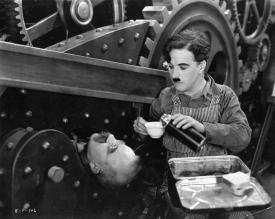
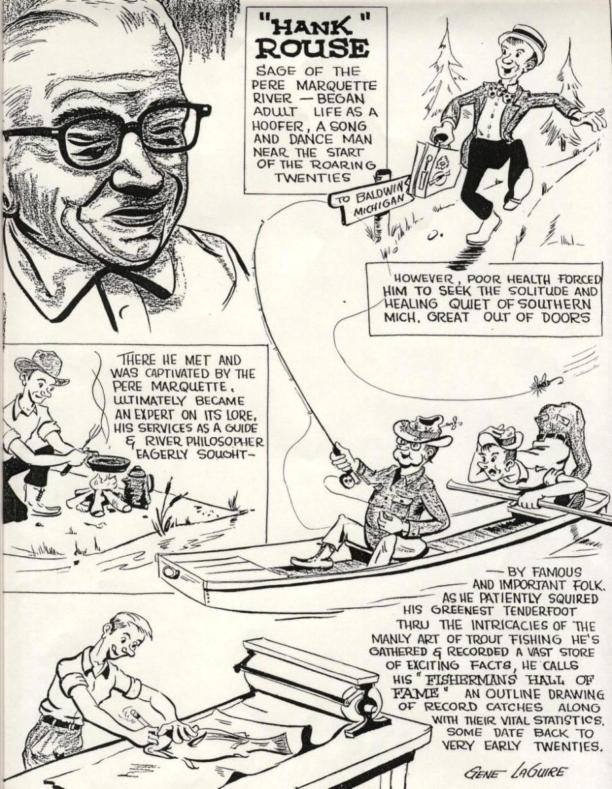
Above is a Press article about my Grandfather, Hank M. Rouse.
He was the “Rouse anchor to Baldwin Michigan for all family
members” and also a son of Conductor Clarence Rouse. He was
a well known Baldwin, Michigan river guide who entertained
many guests at his popular Camp. He was a Vaudeville
performer. That’s where he met my Grandma Dode. For a while
they were a song and dance team. They had so many famous
celebrities of the day, staying with them including: Chester
Conklin, Richard Warren Sears, Alvah Curtis Roebuck, Buster
Keaton, Moran and Mack, Ty Cobb, Don Wilson, Jack Benny,
ediie “Rochester” Anderson, and Radio’s Amos & Andy. I have
many of the the photos. Grandpa said they met so many of them
while touring in Vaudeville. He often guest hosted TV’s Michigan
Outdoors with Mort Neff. My Grandfather taught me about
nature, hunting and bird watching. We were very close, and I
stayed with him a lot as a boy, and as a young teenager.
Clarence’s daughter, my Grand Aunt
Marguerite Maurine “Marguerita or
Beg” Rouse Conklin was married to
film star, Chester Conklin, who was
better known as the Captain of the
Keystone Kops. He also appeared in
many 3 Stooges shorts and a lot of
motion pictures, like Lil’ Abner.
Marguerite had her own religious
radio show in Hollywood and claimed
stigmata. They lived next door to
Johnny Weismueller and his wife,
Lupe Vélez

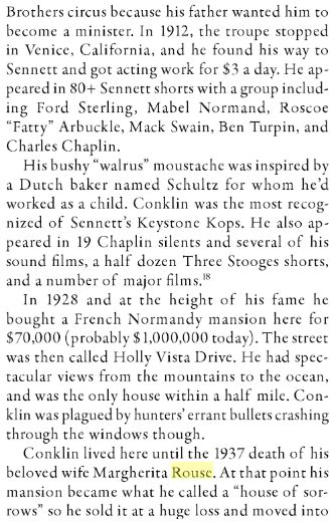
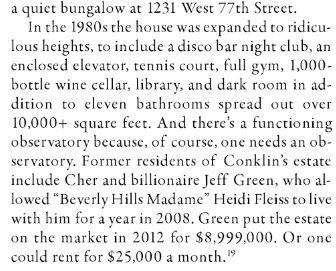
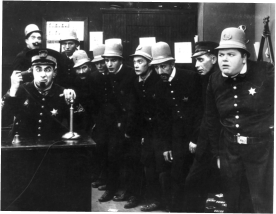
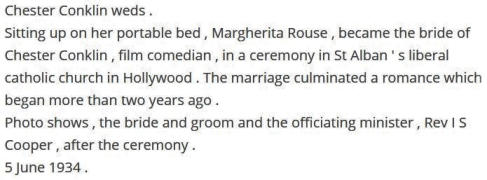
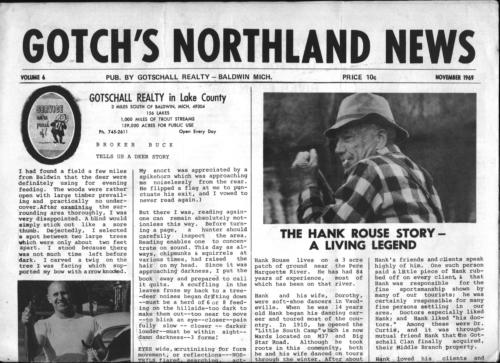
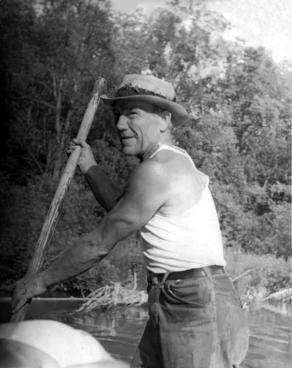
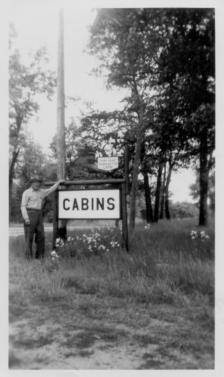
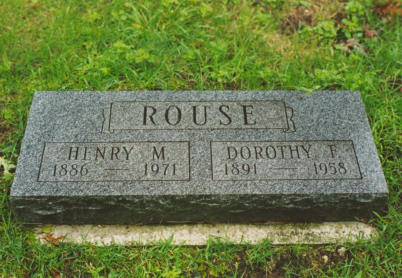
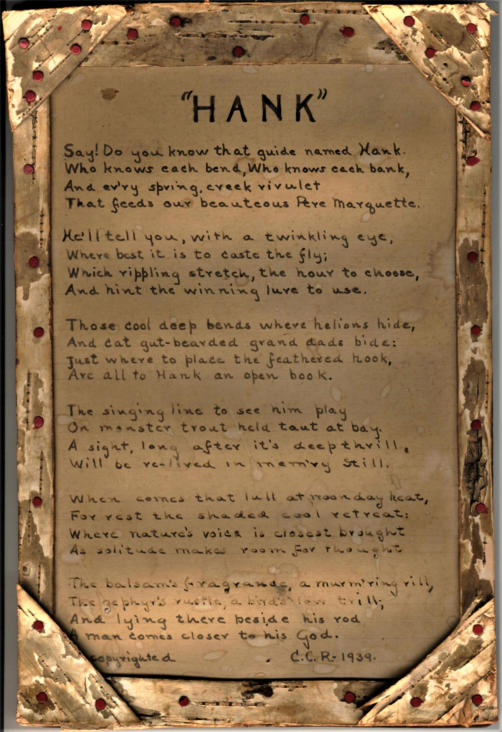
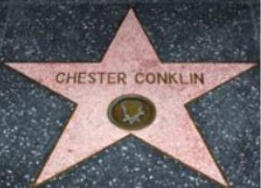
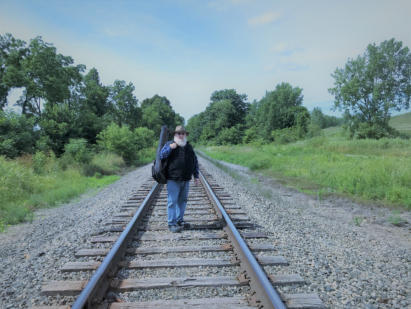
“Ned, That’s Eddie Calhoun on Bass
above. He was Errol Garner’s bassist for
years and appears with him on the “By the
Sea” recording. Possibly one of the
greatest jazz recordings of all time. This is
from my dad's friend, Gary D.....There was
a story many years ago that Richard
played in Vegas, and that he once took
over Jimmy Smith’s B3 while he was on a
break and outplayed Smith. True!”
-Patrice Drilling Wallace
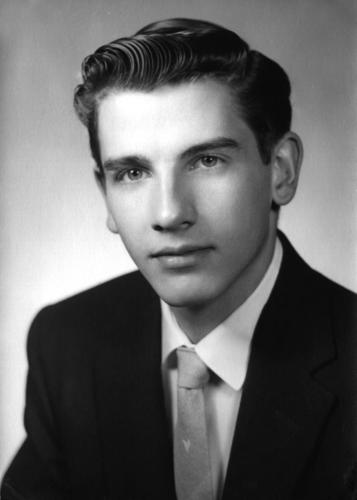
My Uncle, Rich Drilling

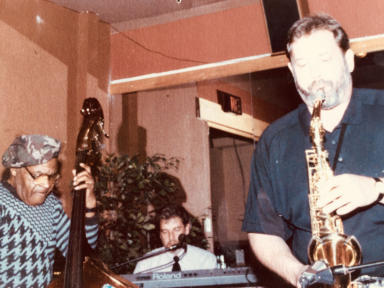
My Mother’s brother was Richard E. Drilling. Uncle Rich and I were very close
until the day he passed away. He was my inspiration and the main reason that I
am a musician. He was an amazing performer and backed up many musical
greats. He also fronted his own bands, too. He often stayed with us in our home
in Sparta, whenever he was between jobs, or playing in the area. My Grandma
Cleta, and mother, Beverly Rouse, were both very good piano players. They
often performed in public. He was Mom’s little brother who grew up to make
quite a mark.
He started playing piano and jazz at at very young age. When I was a little boy,
whenever he would play either one of our 2 pianos, I would hug onto the piano
leg, close my eyes, and listen. The first song he taught me to play was
Sentimental Journey. He taught me to “fatten it up” when playing music. A
couple of years before he passed away, he told me he had always wished we
could have played together. Me too!
He was a master of the piano and organ. He also played saxophone with the
best of them. When he played his B-3 organ, he also played complex bass
patterns with ease, on the bass pedals. I asked him once what his favorite gig
was, and he told me, that it was backing up Della Reese. He said Della took
really good care of her employees. There were other big names like Ella
Fitzgerald, and he was the house keyboardist on the 1960’s WOOD TV Buck
Matthews show. Uncle Rich also told me he had once backed up Frank Sinatra,
He believed he was on major live recordings. Besides everything else, he was a
great guy, with a good sense of humor. I love him so.
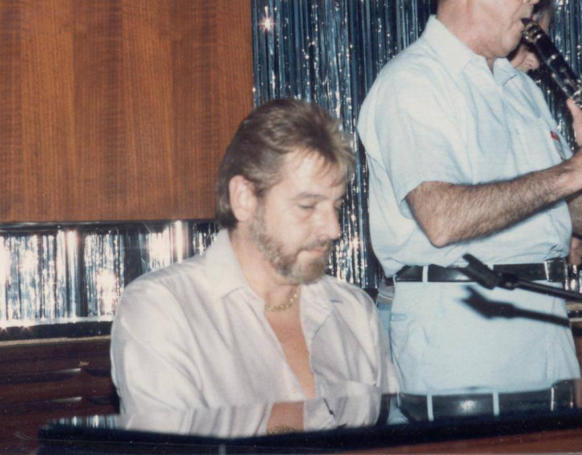
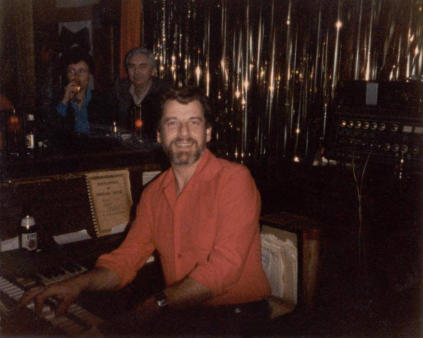
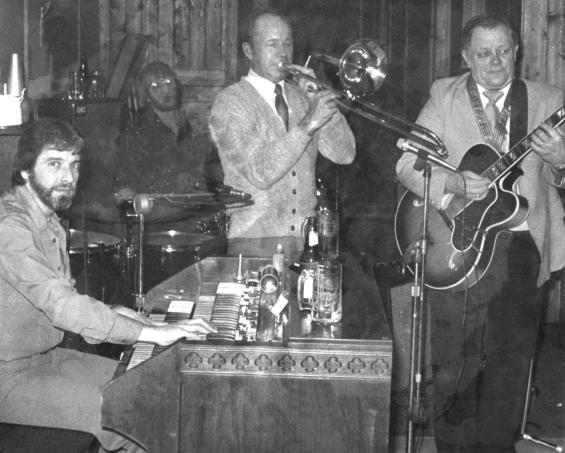
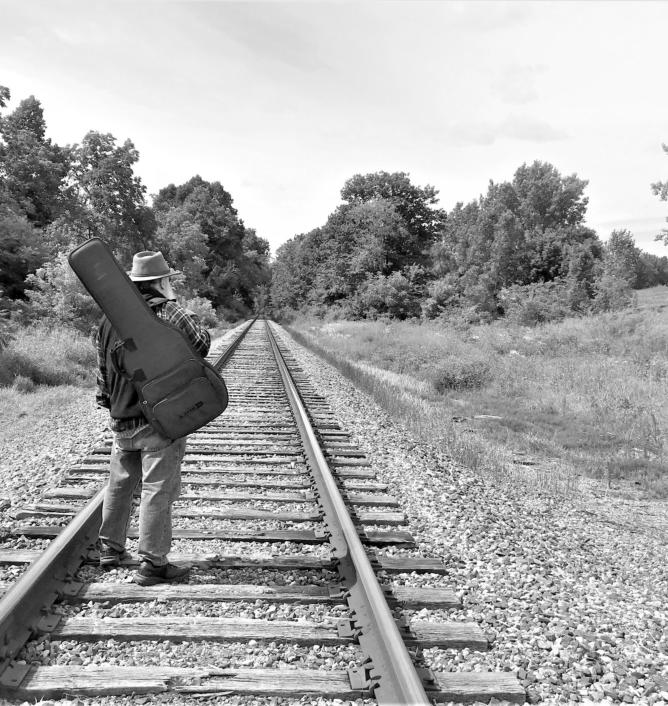
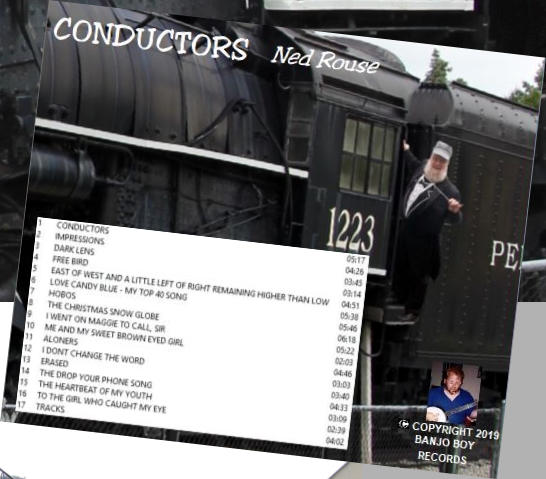
All my music, including this one on my Conductors CD, was assembled like a layer cake. I write mostly on guitar, piano, sitar, or banjo. Sometimes I come up with an idea
and record it on our couch, down in the studio, at a stop light, or in the bathroom at a restaurant, brewery, or coffee shop. I also once had inspiration for a song at a Sam’s
Club. I also pulled old songs from my many songbooks, going back to the 1960’s. Of course things get refined in the process. All of the tracks were recorded live, one at a
time. There were no loops or sounds generated by anyone but me, except for the train sounds that set the initial opening and closing moods. In the studio, I lay the main
instrument of the piece. Then, I add each instrument that is needed, to complete the musical style or idea. Somewhere in between, come my vocals. Each song tells me what
is needed. I spend days mixing and remixing each song, and listening to them on a variety of audio devices before they are finished.
In this, as many other of my recordings, you will hear me playing all of the instruments. This album includes: the drums, percussion, piano, keyboards, bass guitar, vocals,
acoustic and electric guitars, bells and jingle bells, strings, oboe, horns, harmonica, accordion, effects synth/guitar, sitar, and banjo. One of the Conductors tracks took more
than 80 instruments to complete. Many tracks could be basically finished in one or 2 days. I am really good at capturing what I need on a track in 1 to 3 takes. On a couple of
other prior projects, I have let a family member or friend come in to play or sing, on a particular song, but not on the Conductors project. All my music is mastered at a
professional facility offsite. I do all my own album concepts, text, photos and artwork.
CONDUCTORS ALBUM MENU/SONG BREAKDOWN:
1. Conductors – A song about the many Conductors and artists in my family.
2. Impressions – The impressions my family left in my life's journey.
3. Dark Lens - The veil that darkness places over society.
4. Free Bird – Written as a song that I created when audience members yell out, “Play Free Bird!! It is about us putting ourselves in our own cages. I recorded the vocals with
a terrible cold, which made it sound a bit different and I liked the effect!
5. East of West, and a Little Left of Right, Remaining Higher than Low – This is a song about the tragedy of violence against a vulnerable woman.
6. Love Candy Blue/My Top 40 Song – A medley of 2 very rare pop songs I wrote long ago. Love Candy Blue is about my 3 serious prior relationships before I married my
wife, Sara. My Top 40 song says it all, about what I think pop music is.
7. Hobos – I played my sitar on this one. It is about what my Mother taught me about the hobos in Baldwin, Michigan, during the great depression.
8. The Christmas Snow Globe – A fantasy song about a Christmas reunion in an eternal snow globe.
9. I Went on Maggie to Call, Sir – A homespun American ballad, words and music by my Grand Uncle, Charles Rousseau. Uncle Charlie Rouse wrote this, we believe in the
late 1930’s. Many years after he had passed away, my mother discovered his handwritten sheet music, crammed under the old typewriter she inherited from him. She
entrusted it to me, and after having it locked in my safe for almost 35 years, I pulled it out, and created a piece reflecting the era, to honor Uncle Charlie, and his vision from
his own sheet music!
10. Me and My Sweet Brown Eyed Girl – My love for my wife, Sara, only grows bigger with time. This is another way to tell our story, from a different angle.
11. Aloners – I wrote this in my junior year of high school. It remains intact, the way it was always played. It is about people who aren’t respected and are feeling like loners.
12. I Don’t Change the Word (Lord Jesus) – Jesus wrote this through me. It was clear, flowing out of me, and it came like a gift from God. It reminds believers to not mince
or change the Word.
13. Erased – The basic message of this song is, “How better off are we if we have no point of reference or accurate history?” It belongs in a museum!
14. The Drop Your Phone Song – This was written mostly in my head, in the men's room of the EB Brewery and Pub, as the musicians tried playing over the room noise.
Musicians will really understand this one. What it amounts to is, some people with cell phones are very disrespectful, especially to musicians.
15. The Heartbeat of my Youth – This is a power bluegrass song. I love to play my banjo! It is about moving forward in the best way possible, and why.
16. To the Girl Who Caught My Eye – Sara is my true love. From high school to now, it tells our story from a different perspective.
17. Tracks – This song is about looking at the past, other's journeys, and then looking to plan my future, with as few detours as possible

